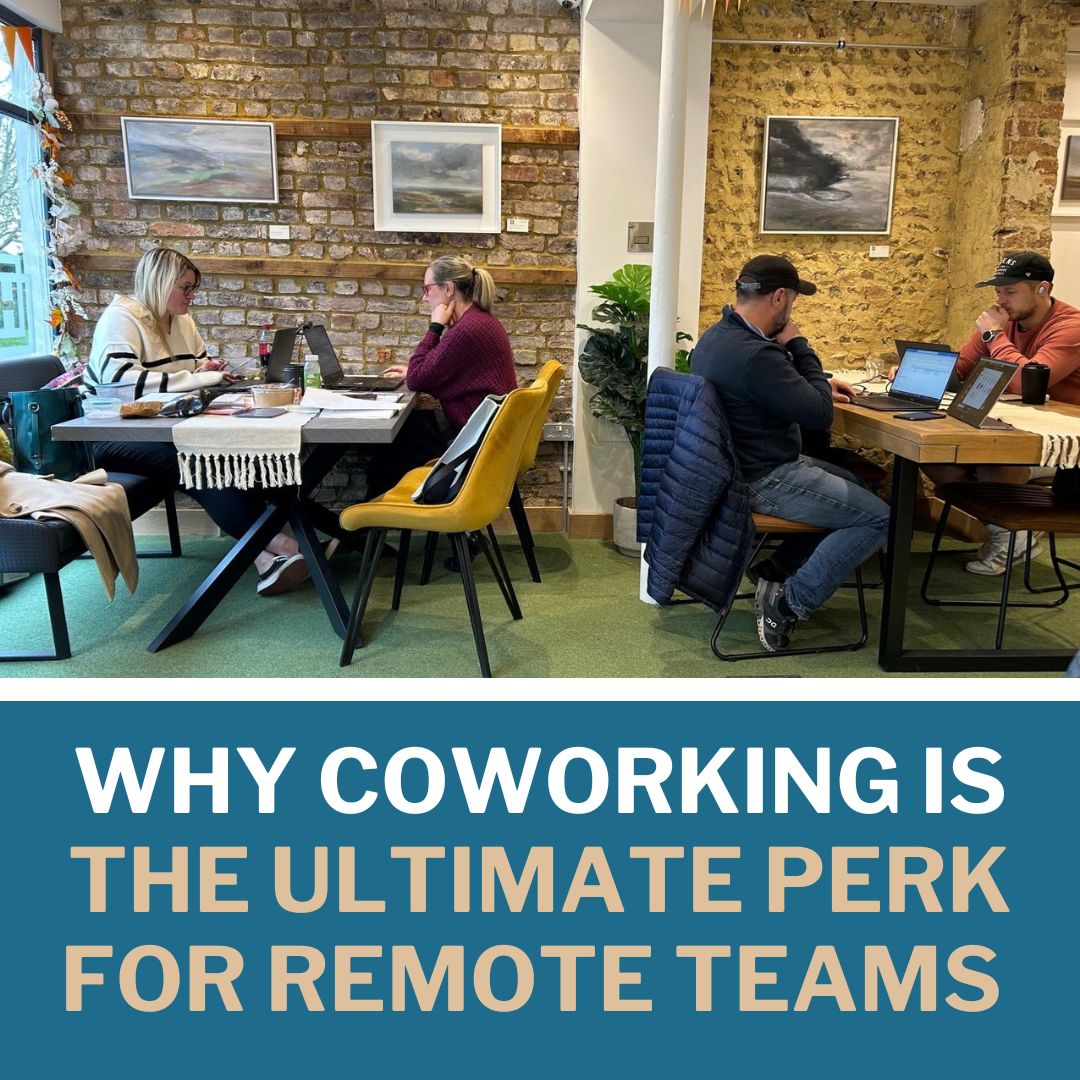Our latest blog from HurstWorks Co-Founder Rob Fisher examines how coworking could be the ultimate perk for remote teams.
Is remote working a threat to your team’s mental health?
I come across a fair number of small and medium-sized businesses who have fully embraced remote working and closed offices or not renewed their commercial leases. With a focus on costs, employee wellness can sometimes take a backseat. While working from home has its perks—like flexibility and no commute—it also comes with challenges that can affect mental health and productivity. For small businesses, prioritising the wellness of your remote team isn’t just a nice-to-have; it’s a must-have.
One of the most impactful (and often overlooked) ways to boost employee wellbeing? Coworking.
The mental health pitfalls of remote work
Remote work has transformed the way we work, but it’s not without its potential downsides. Studies show that loneliness and isolation are common among remote workers, with many missing the energy and camaraderie of an office environment. Add to that the blurring lines between work and personal life, and it’s easy to see how wellness can take a hit.
For small businesses, the stakes are high. When employees struggle, their engagement and productivity often follow suit. Small businesses may even be opening themselves to risk of claims. Providing a coworking perk could be the answer.
5 ways that Coworking Spaces can support mental wellbeing:
- Combating Loneliness
Coworking spaces bring people together. Whether it’s a quick chat over coffee or collaborating with like-minded professionals, these spaces foster a sense of community that remote workers often crave. - Boosting Productivity
Home environments can be full of distractions. Coworking spaces offer a professional setting designed for focus, with fewer interruptions and better facilities. - Encouraging Work-Life Balance
Working from home can blur the lines between work and leisure. A coworking space creates physical separation, helping employees maintain healthier boundaries. - Promoting Creativity and Networking
Sharing space with diverse professionals can spark fresh ideas and open up networking opportunities. It’s a win-win for employees and employers alike. - Supporting Routine and Structure
For those who struggle with maintaining a routine at home, a coworking space provides structure—a designated place to start and end the workday.
Why should Small Businesses care?
Employee wellness isn’t just a large company concern. Small businesses rely on tight-knit teams, where every individual’s performance matters. By offering access to coworking spaces, you demonstrate a commitment to your team’s mental wellbeing, which in turn builds loyalty and attracts top talent.
How are coworking costs taxed by HMRC?
Small businesses in the UK can generally deduct the costs of coworking space memberships as allowable business expenses, reducing their taxable profits. This deduction applies whether the coworking space is used occasionally or serves as the primary workplace.
Travel expenses:
- Occasional Use: If employees use a coworking space sporadically, travel expenses to and from the space can typically be claimed as business expenses.
- Regular Use: When a coworking space is the employee’s main workplace, travel to and from the space is considered ordinary commuting, and such expenses are generally not tax-deductible.
Capital allowances:
If a business purchases equipment or furniture specifically for use in a coworking space, it may be eligible for capital allowances, allowing tax relief on the depreciation of these assets. This area can be complex, so consulting with a tax adviser is recommended.
Reporting:
Providing coworking space access to employees is generally considered a business expense. However, if it is deemed a benefit, employers might need to report it to HMRC and could be liable for tax and National Insurance contributions.
Recommendations:
- Consult a tax professional: Tax regulations can be intricate and subject to change. Engaging with a tax adviser ensures compliance and maximises potential benefits.
- Maintain detailed records: Keep comprehensive records of all expenses related to coworking spaces, including invoices and receipts, to substantiate claims if audited.
By understanding and appropriately managing these tax implications, small businesses can effectively support their remote employees through coworking spaces while optimising tax efficiency.
Ready to take the first step?
If you’re a small business owner or HR consultant, consider coworking as a powerful tool in your wellness strategy. Whether it’s a membership at a space like HurstWorks or a local venue near your team, this simple perk can make a big difference.
Ready to explore the benefits of coworking for your team? Get in touch with us at HurstWorks today: info@hurstworks.co.uk or call 01273 978438.





